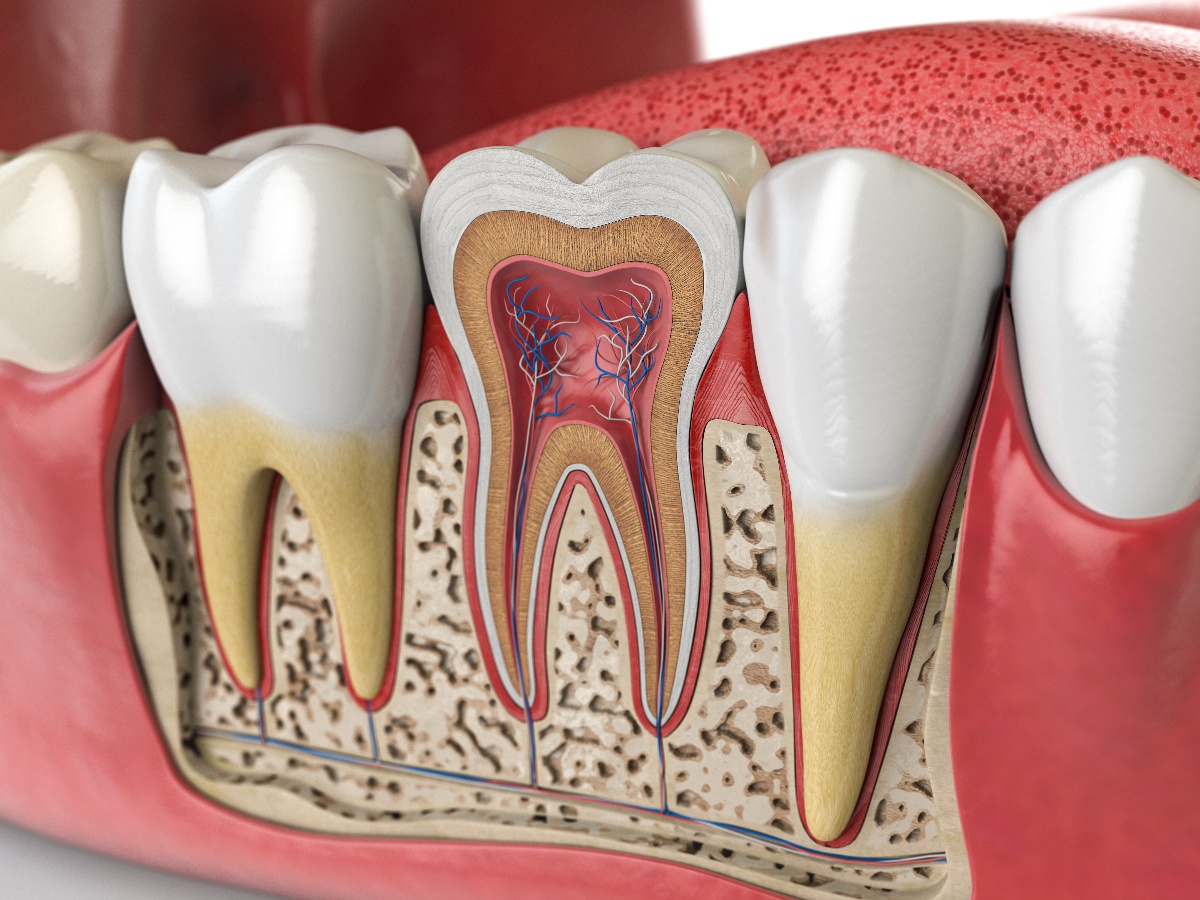When it comes to dental health, few phrases cause as much anxiety as "root canal." Yet, if you understand the symptoms and the treatment, you can allay your concerns. Knowing the signs that may indicate the need for a root canal can also save you from prolonged discomfort and more serious complications. A root canal prevents a badly damaged or infected tooth from extraction. By identifying the early warning signs, you can seek timely treatment and avoid more extensive and costly dental work in the future.
This article examines crucial signs indicating a potential need for root canal treatment. This can enable you to make informed choices and determine when to seek professional dental evaluation.
Root Canal Essentials
Root canal treatment, or therapy, is the removal of the compromised or infected tooth pulp located beneath the hard structures of tooth enamel and dentin. This preserves the tooth's outer structure, which can then be restored by your dentist.
Fortunately, the dental pulp, which contains nerves, blood vessels, and connective tissue, only plays a critical role during the tooth's development. After a tooth is fully developed the pulp is less essential for its function. However, deep decay, trauma, or repeated dental procedures can sometimes irreversibly damage the pulp tissue. When this occurs, a root canal is necessary to save the tooth.
During a root canal, an infected pulp is removed, and the space previously occupied by the pulp is cleaned and disinfected. This pulp space is then cleaned and filled to prevent further infection. Modern dental anesthetics and root canal instruments allow the procedure to be completed comfortably and relatively quickly. The success rate is remarkably high when compared to other medical procedures. Many patients are pleasantly surprised to find that a root canal is very comparable to having a filling placed.
Common Root Canal Signs and Symptoms
Persistent Tooth Pain
Continuous tooth pain is one of the most revealing signs that you may need a root canal. This pain might be constant or intermittent, but it often intensifies when you chew, apply pressure to the tooth, or expose it to extreme temperatures. The discomfort may also radiate to your jaw, face, or other teeth, making it challenging to pinpoint the exact source. If you find that over-the-counter pain relievers are not effective, it's time to consult your dentist.
Indicators of Persistent Pain:
- Pain that worsens when biting or chewing.
- Discomfort that radiates to surrounding areas like the jaw or ear.
- Pain that disrupts daily activities or sleep.
Prolonged Sensitivity to Hot and Cold
If hot or cold food and beverages causes you to have sharp or lingering pain, it could indicated that a tooth’s pulp is inflamed or infected. Unlike typical sensitivity that fades quickly after the hot or cold is removed, this type of sensitivity often persists for minutes or longer. This can be a sign that the nerves inside a tooth are compromised. This prolonged sensitivity is a clear sign that you should see your dentist for a thorough evaluation.
Indicators of Irreversible Pulpal Sensitivity:
- Intense discomfort while consuming hot or cold foods.
- Lingering discomfort even after the stimulus is removed.
- Sensitivity that gradually increases over time.
Swollen or Tender Gums
Swelling or tenderness in the gums, particularly around a specific tooth, can be another indicator that a root canal is needed. This swelling is often due to the buildup of infected tissue in the tooth's pulp, which spreads to the surrounding gum tissue. In some cases, a pimple-like bump, known as a gum boil or dental abscess, may appear on the gums near the affected tooth. This is a clear sign of infection that requires prompt treatment.
Symptoms to Watch For:
- Red, swollen gums that are tender to the touch.
- A pulsating sensation in the gums, especially at night.
- A pimple-like bump that may release pus when pressed.
Tooth Discoloration
Tooth discoloration, especially when it affects a single tooth, can signal that the pulp inside the tooth is infected or dying. This discoloration occurs because the dying tissue affects the tooth's internal hard structure, often leading to a grayish or black appearance. Unlike surface stains caused by food or drink, this discoloration is internal and indicates a serious issue that requires attention.
Possible Causes of Tooth Discoloration:
- A previous trauma to the tooth that went untreated.
- Deep decay that has reached the pulp.
- Repeated dental procedures on the same tooth can harm the pulp.
Pain When Chewing or Biting
Pain when chewing or biting down can indicate inflammation around the tooth's roots or internal decay of the dental pulp. This pain is usually sharp and can be a clear sign that a root canal is necessary. If the pain persists or worsens, you need to seek professional evaluation to prevent further damage or infection.
Possible Causes of Pressure Sensitivity:
- Biting on hard foods like nuts or candy.
- Clenching or grinding your teeth at night, which is also referred to as bruxism.
- Recent dental work, such as a filling or crown, that didn’t alleviate the pain.
Chipped or Cracked Tooth
Tooth fractures or cracks may expose a tooth’s pulp to bacterial contamination and lead to the need for a root canal treatment. Even minor chips or cracks should not be ignored, as they can compromise the tooth's integrity and lead to more severe issues. If you've experienced trauma to a tooth, it's crucial to have it examined by your dentist, even if you're not experiencing immediate pain.
Indicators of Chipped or Cracked Tooth:
- Visible chips or cracks in the tooth.
- Pain when biting on a tooth.
- Sharp sensitivity when releasing your bite after chewing.
When to See Your Dentist
Recognizing these signs is crucial, but regular dental check-ups are equally important for maintaining oral health. This can enable your dentist to detect potential problems early and prevent the need for a root canal in the future. However, if you experience any of the symptoms mentioned above, particularly persistent pain or swelling, it's important to schedule an appointment with your dentist as soon as possible.
The Consequences of Delaying Treatment
Ignoring the signs that you may need a root canal can result in severe complications, such as:
- Development of abscesses that can cause severe pain and swelling.
- Spread of infection that can potentially lead to systemic issues.
- The necessity for more extensive dental work, such as extractions or implants, if the tooth cannot be saved.
Conclusion
Understanding the signs that may reveal you need a root canal treatment is critical to maintaining your oral health. While the thought of a root canal may seem daunting, modern techniques have made the procedure comfortable and highly effective at saving teeth that might otherwise be lost. By recognizing symptoms such as persistent pain, sensitivity to temperature, swollen gums, or tooth discoloration, you can seek timely treatment and potentially avoid more serious complications.
Schedule an Appointment
To learn more about how Palmetto Dental Arts can help you maintain optimal oral health and a beautiful smile, call us or contact us online.




